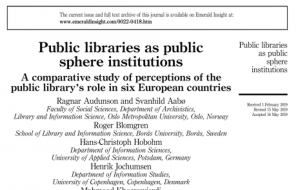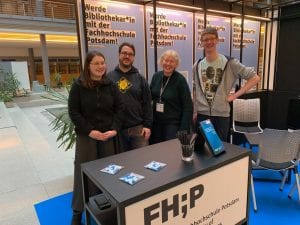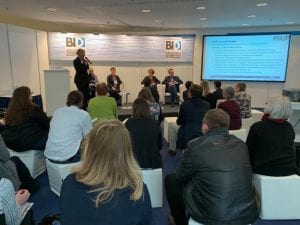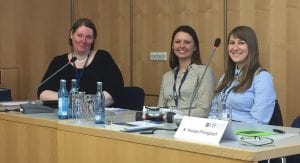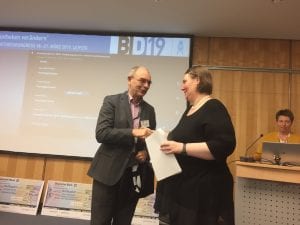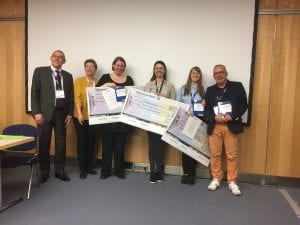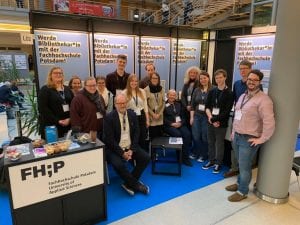
Photo: Barbara Fischer (@fischerdata via Twitter)
Auf dem BID Kongress letzte Woche gab es dazu eine Reihe von Sessions und Podiumsdiskussionen. Im „Themenkreis“ 1: Politisch sein / Politisch handeln konnte ich einige erste Ergebnisse unseres europäischen Netzwerkprojektes ALMPUB vorstellen (20.03.2019, 09:00 – 11:00 Uhr, Saal 5). Der nicht kleine Saal 5 war besetzt bis auf den letzten Platz und einige Zuhörer mussten stehen. Obwohl der Kongress 4600 Teilnehmer hatte, soll dies nicht bei allen Vorträgen der Fall gewesen sein (z.B. bei Datenthemen…?, heißt es). Ein bemerkenswertes Zeichen.
In der Vorbereitung zu dem Vortrag (der auch ausformuliert für die Proceedings eingereicht wird) hatte ich das Vergnügen, mich auch mal wieder in politische Theorie einzuarbeiten und musste feststellen, dass der alte Habermas mit seinem „Strukturwandel der Öffentlichkeit“, der im nordischen und anglo-amerikanischen mit dem Schlagwort „public sphere“ gerade gut rezipiert wird, in der frankophonen Politikwissenschaft schon einige Gegenmodelle erfahren hat, die teilweise auch schon länger in meinem Regal stehen (Lyotards Différend). Der Ansatz und Antrag zum Forschungsprojekt ALMPUB geht jedoch noch von Habermas aus und noch nicht einmal von Adorno/Horkheimers „Dialektik der Aufklärung“). Vielleicht wird die noch nicht abgeschlossene Diskussion im Projekt dies noch auffangen können.
Der Foliensatz ist natürlich nicht in allen Fällen für sich selbst sprechend. Dazu fehlt der Audioanteil ;-). Dennoch hier die Slideshare-Fassung, die leicht abweicht von der OPUS Publikation des BIB. Letztere hat jedoch eine zitierbare URN: urn:nbn:de:0290-opus4-161932
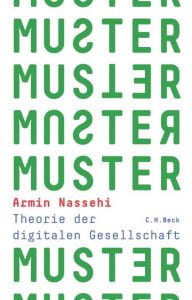 Nassehi, Armin: Muster. Theorie der digitalen Gesellschaft. München: C.H.Beck, 2019. 352 S. – Hardcover, EUR 26,-, ISBN 978 3 406 74024 4
Nassehi, Armin: Muster. Theorie der digitalen Gesellschaft. München: C.H.Beck, 2019. 352 S. – Hardcover, EUR 26,-, ISBN 978 3 406 74024 4
